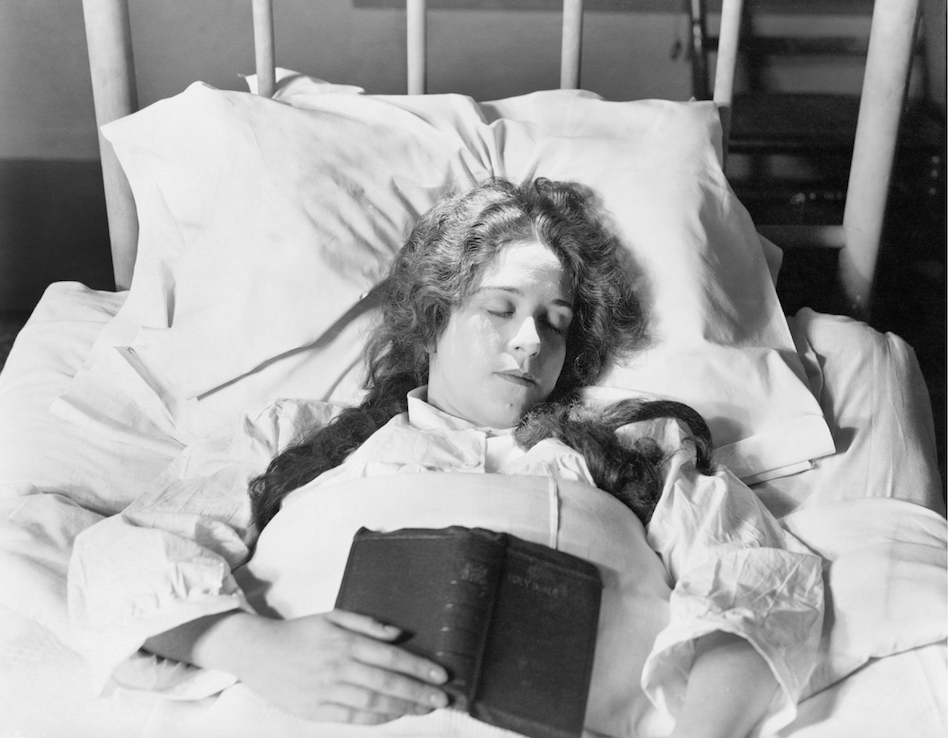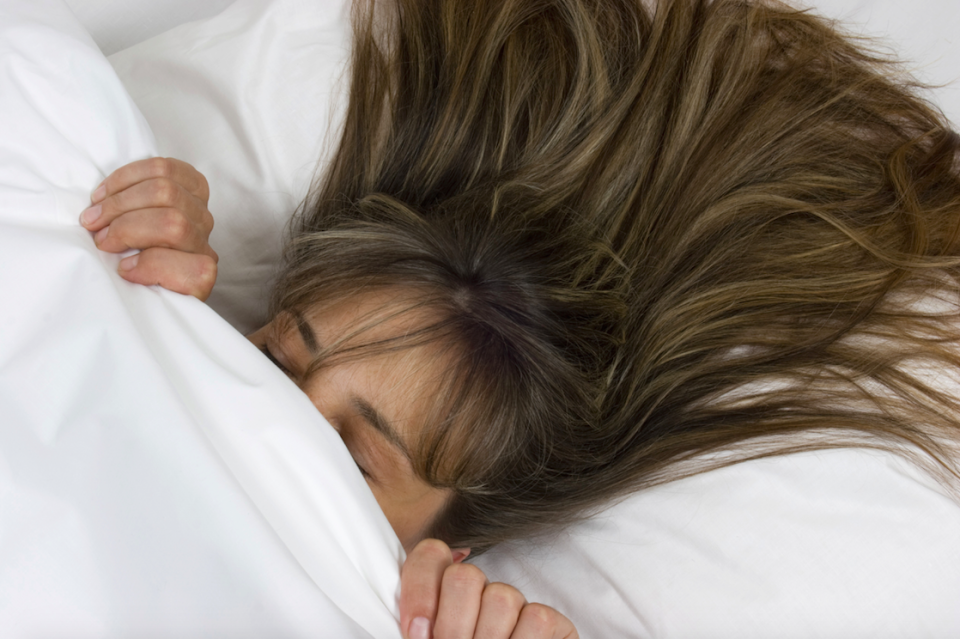These Foods Might Be Giving You Nightmares

That midnight snack could be to blame for your trippy dreams. (Photo: Rex Features)
Try to remember your dream last night. If you do and it was a little on the weird side, that cheese binge you had right before bed could be the culprit. Pre-bedtime snackers, take note: The types of food you eat before hitting the sack can have a major effect on your dreams.
Eating anything close to bedtime increases the activity of your metabolism, which causes your brain to stay active, making it more likely that the sleeper will have vivid dreams.
“When we consider that the nutrients in food affect many things in the body, such as energy levels, mood, and sleep quality, it is entirely plausible that different foods can also affect dreams in different ways,” explains nutritionist and yoga teacher Julie Montagu.
With that in mind we’ve put together our avoid-list of foods to skip if you don’t fancy dreams that will haunt you all day long.

It may be the ultimate midnight snack, but cheese can play havoc with your dreams. (Photo: pixabay.com via Pexels)
Cheese
You may have heard the old wives’ tale that eating cheese before bedtime gives you nightmares, and it turns out there’s something to it. “There is much speculation, and actually some solid research, to suggest that eating dairy products in the hours leading up to bedtime can cause bad or unusual dreams. Cheese and milk are thought to be the biggest culprits within this group,” explains Montagu. “Cheese contains tryptophan — an amino acid that the body uses to produce serotonin. Serotonin is the chemical in the brain that helps to keep the mood stabilized. So enjoying a dose of cheese right before bedtime could contribute to heightened levels of serotonin in the body, which could influence how prominently you dream.”
Cured and processed meats
You should probably stop raiding the fridge for cold cuts before bedtime. “Sausages, salami, bacon, hot dogs, corned beef are very high in tyramine, an amino acid that regulates blood pressure,” explains clinical nutritionist Kamilla Schaffner, from My London Nutritionist. “Foods high in tyramine are nutritionally known to disrupt normal sleeping patterns as well as the central nervous system in general, which may lead to increased episodes of nightmares, disturbing dreams, or persistent migraines.”

If only I hadn’t eaten that curry, I’d be dreaming of Jamie Dornan right now (Photo: Rex Features)
Curry
There’s a reason your dreams ramp up a notch after Friday-night takeout. “Spicy foods right before bedtime have also been associated with bizarre dreams,” explains Montagu. “The body has to work a bit harder than usual to digest seriously spicy foods. This disruption to the digestive system could impact the quality of sleep that you enjoy, leading to undesirable dreams.”
Pickles and Fermented Foods
Terrible for your breath, even worse for your dreams. “Foods that are fermented or pickled in any way – sauerkraut, kimchi, tofu or pickles, soy sauce, miso and miso-containing products – can induce bad dreams when eaten at night,” explains Schaffner.
Alcohol
Cocktails or “alcoholic beverages, such as beer, red wine, sherry, and liqueurs are known to induce nightmares due to their fermentation process, especially when consumed in excess,” says Schaffner.

Heavy night? You could be in for even heavier dreams! (Photo: Salo Al via Pexels)
Chocolate
Noooooo! “Eating any food late at night that has a high fat content is going to cause some degree of indigestion. Indigestion can cause you to have a poor quality of sleep, as you are likely to wake often, and when you do so you are more likely to remember the strange dreams that you were having,” explains Montagu. You’re breaking our hearts here.
So how do we ensure our dreams are more Ryan Gosling than Walking Dead? “The best way I can suggest to avoid disturbed dreams is to not eat anything in the two to three hours before you go to bed,” advises Montagu. “This gives your digestive system a chance to catch up, and you are more likely to experience an undisturbed sleep until morning.”

